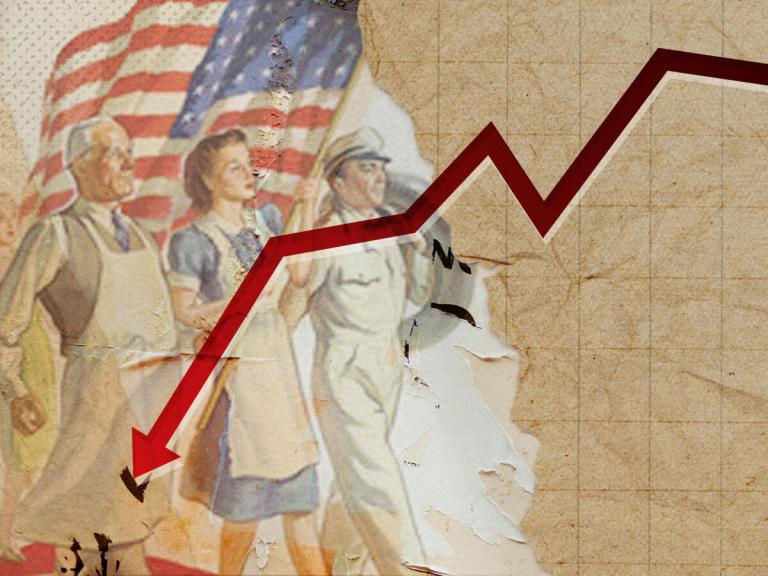G.K. Chesterton once wrote, “Tradition is the extension of Democracy through time.” He later went on to add that “Democracy tells us not to neglect a good man’s opinion, even if he is our groom; tradition asks us not to neglect a good man’s opinion, even if he is our father.” Chesterton said he couldn’t separate democracy and tradition because of these characteristics; if that is so, then democracy is in trouble, according to a recent poll conducted by The Wall Street Journal and the National Opinion Research Center (NORC).
One thousand nineteen adults were surveyed from March 1st to the 13th on the importance of things such as patriotism, having children, money, and religion. They were also asked about their views on the economy. When it came to the US economy, 80 percent of respondents rated the US economy as poor/ not so good. Only 20 percent rated it as excellent or good. Forty-seven percent of respondents believed the economy would get worse, while 38 percent believed it would stay the same. Fifteen percent believed it would get better. Forty-four percent also disagreed with the statement that they would be able to improve their standard of living, while 28 percent agreed.
In regard to traditional US values like having children, patriotism, and hard work, all areas had diminished in importance for Americans. Overall, 71 percent of respondents stated that America was the greatest or one of the greatest countries in the world. The poll found that 38 percent of Americans found patriotism “very important,” whereas, in 1998, that number was 70 percent. Patriotism ranked especially low among younger Americans, with 23 percent of those polled under the age of 30 considering it important, while 60 percent of those 65 and over considered it very important.
Religion also took a big hit. In 1998, 62 percent of Americans said religion was “very important.” The current poll showed that the number had dwindled to 39 percent. Thirty-four percent stated that their religion was essential to their identity, while 29 percent said it was “important but not too essential.” Thirty-seven percent considered it “not too important.” The value which claimed the most important in identity out of options like religion, gender, race, and political affiliation, was gender, with 48 percent considering it essential. When it comes to church attendance, 32 percent stated they never attended religious services, while 18 percent went every week or nearly every week.
The poll also showed that fewer Americans consider hard work and having children to be important. Thirty percent said having children was very important, having dropped from 43 percent in 2019 when the poll was last done. Sixty-nine percent stated that hard work was very important, a drop from 89 percent in 2019 who said so. The only value that had increased in importance since the poll’s inception in 1998 was money, increasing from 31 percent to 43 percent, most likely reflecting the economic concerns of the group. Political and religious affiliations also played a significant role in what respondents valued, with more Republicans being religious while Democrats responded more positively to issues of transgenderism and pronoun use. There were also significant differences according to age, with younger Americans placing much less importance on traditionally American values. “Aside from money, all age groups, including seniors, attached far less importance to these priorities and values than when pollsters asked about them in 1998 and 2019. But younger Americans in particular place low importance on these values, many of which were central to the lives of their parents,” WSJ reported. Bill McInturff, a pollster from the previous survey, summed up the dramatic changes as “…it paints a new and surprising portrait of a changing America.”



